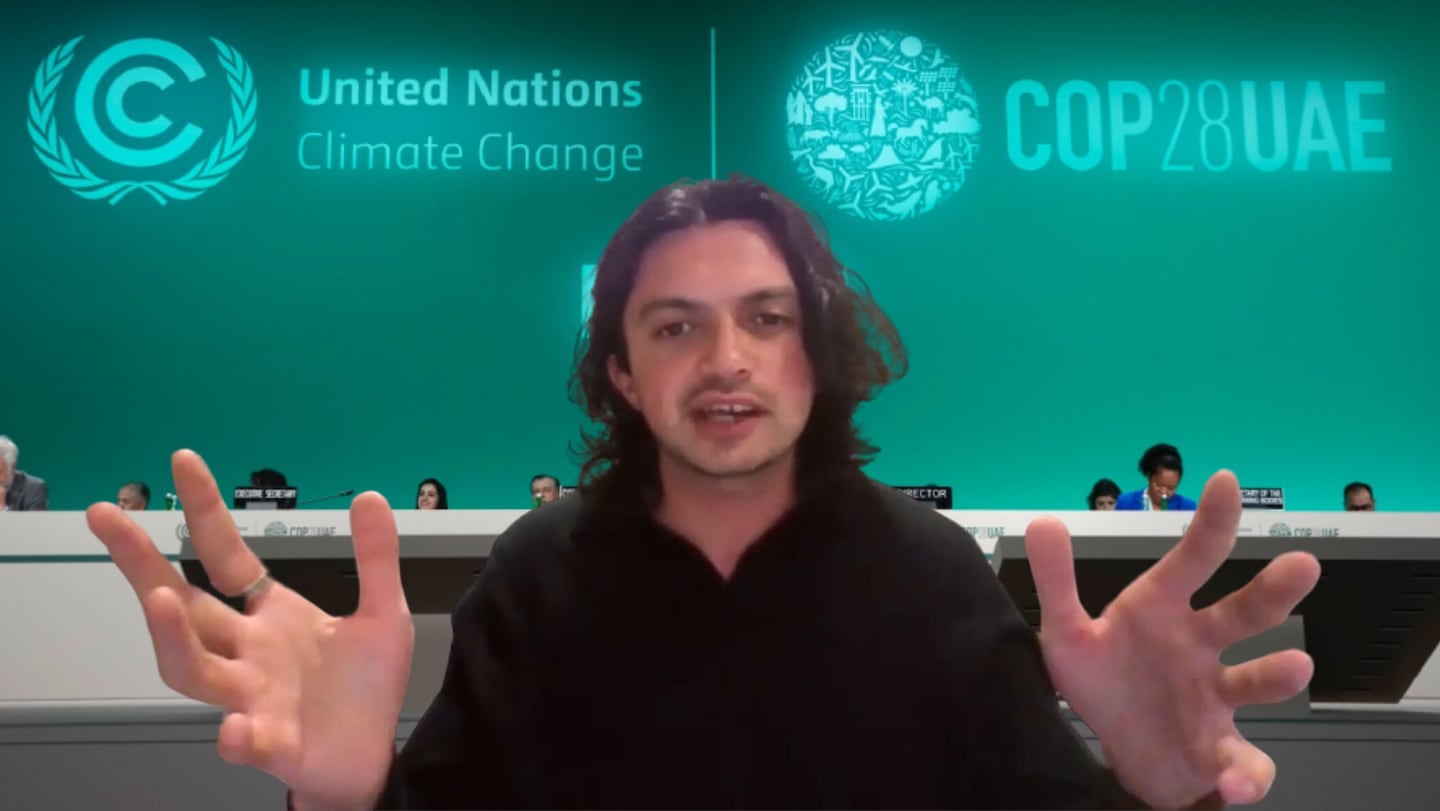COP 28 continues as world leaders gather in the United Arab Emirates to discuss key challenges to climate change.
Indigenous climate activist Kaeden Watts (Ngāti Tūwharetoa, Ngāti Maniapoto, Ngāi Tūhoe), who is at the conference, says there’s urgency at COP 28 following a year of extreme weather.
“You can see that with some of the bigger players such as Germany, the UK and Japan. They’re all trying to push early at the start of the conference to ensure big actions are early on,” he says.
In 2018 the Labour government stopped drilling in New Zealand’s offshore oil and gas exploration after research showed it contributed to the evolution of climate issues.
Kaeden says at COP 28 many eyes are on Aotearoa as the new coalition government looks to re-open exploration, which he says could impact te Iwi Māori the most.
“It’s the breaking down of our land, it’s the feathering of our communities from the place, it’s the loss of culture, it’s the loss of kai sovereignty, all these different things that our people rely on, and work so hard on to keep and sustain.
Oil and gas decision ‘frustrating’
“That will be lost if we don’t take urgent action on climate change.”
Greens Party co-leader James Shaw is also in attendance alongside National’s new Climate Change Minister Simon Watts.
Shaw says the proposed decision is incredibly frustrating.
He hopes the new government can find a way forward since reactions from the Pacific leaders haven’t been warmly received.
“I do hope Aotearoa, New Zealand does take a strong stand to say ‘we just need to stop putting this stuff in the atmosphere in the first place’.
We do need to pull down so much of what we have already put up there. I think our government and all governments should be adopting that position,” Shaw says.
Fossil award
Aotearoa also won the Fossil of the Day award this week but it isn’t something to celebrate, Kaeden says.
“That’s for the country that has been awarded for doing the absolute worst regarding climate action.”
Kaeden says, with the conference not ending until December 12, this might not be the last award that Aotearoa wins.
“Other countries have picked up on that and are furious that a country that has positioned itself like New Zealand as a leader in climate action, as a leader in sustainability, would backtrack on something so progressive,” he says.
The new government isn’t making any promises about putting money into any climate funds at this year’s conference due to focusing on resuming Parliament.


